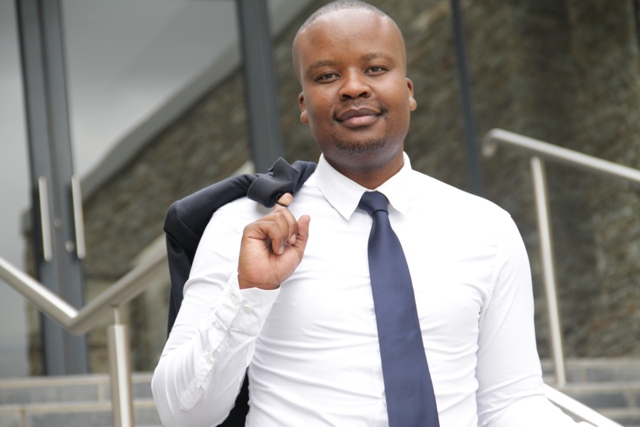05 Jul PR guru is black excellence personified

Hackneyed as it may sound, ‘to be young, gifted and black’ fits snugly by way of defining Tebogo Ditshego, a phenomenal young achiever whose rise can only be described with another cliché – meteoric.
He is chief executive officer of Ditshego Media, which he founded in 2011. Three years later, he was listed as one of Forbes Magazine’s top 30 African Entrepreneurs under the age of 30.
The accolades have never stopped coming. Last year he was appointed by Gauteng Premier David Makhura to be the Chairperson of the Gauteng Premier’s Service Excellence Awards.
The latest feather in his cap is his appointment as President of the Public Relations Institute of Southern Africa (PRISA).
This is the same PRISA that was founded in 1957, the same year his mother, Elsie, was born.
Elsie is the widow of Pan Africanist Congress of Azania (PAC) hardliner Sam Ditshego, best known for his incisive political analyses, a lot of which graced the pages of this newspaper.
In 1976 as part of the watershed Soweto student uprising, she was narrowly missed by a bullet, a chilling thought that moved her son to ponder: “If it had hit her, I may not have been born.”
Both Sam and Elsie would later skip the country for exile, ending up in places like Canada until their return towards the historic 1994.
Young Ditshego grew up in Kagiso, west of Joburg.
“The response to my appointment as the president of (PRISA) has been remarkable, as I take over the reins at a time when the industry requires pointed direction, greater organisation, enhancement of standards and a greater understanding of the essence of the public relations and communication profession,” he says.
An accredited chartered public relations practitioner, Ditshego says: “At the heart of the progress of mankind has been our ability to collaborate on common causes and standing on the shoulders of those who came before us while planting seeds for the next generation.
Working together requires a profound mutual understanding which extends to a well-informed comprehension of our cultural diversity, and communication is the glue that binds the relationships we form. Therefore, it can be argued that communication is at the heart of the progress of organisations and humanity.
This augments the gravity of our responsibility to organise the industry, united behind standards that will establish fertile ground for the public relations and communication profession to add value, manifest a mutual understanding with the public at large and command a profound sense of mutual respect with stakeholders.”
He is aware of the pitfalls littering the path to success: “A few challenges that have inhibited the advancement of the industry include the low barriers to entry in the industry, amplified by the lack of the widespread uptake of public relations and communication agencies and practitioners joining a professional body as a screening mechanism to authenticate the bona fides of agencies and practitioners.
Furthermore, in their interactions with PRISA, some agencies have expressed concerns regarding some of the tight timelines to bid for contracts and requests for strategies as a part of proposals without remuneration, compromising their bottom line and creative capacity to execute the proposals.
A general understanding of the value of public relations and communication is often inadequate. “Consequently, PRISA would be required to develop a broader understanding of the profession’s influence in society and the measuring tools available to evaluate milestones.”
He has hit the ground running, thanks to the plan he comes armed with which includes, among others, the need to organise the industry and increase individual membership by amplifying the institute’s presence throughout the lengths and breadths of southern Africa, encourage greater co-operation with institutions of higher learning to improve the relevance of the public relations and communication curricula and nurture relationships between the public relations and communication profession and all communication-related sectors through periodic engagements.
There is no doubt that he will achieve what he’s set himself to do at PRISA, as he has acquitted himself fairly well before.
In March 2017, Ditshego participated in the Austrian Leadership Programme for International Business Leaders.
In 2019 he was elected deputy president of the University of Johannesburg’s Convocation and Member of Council.
He’s currently studying towards his Master’s of Business Administration (MBA) at GIBS Business School.
Being president of PRISA should be a cinch.

Sorry, the comment form is closed at this time.